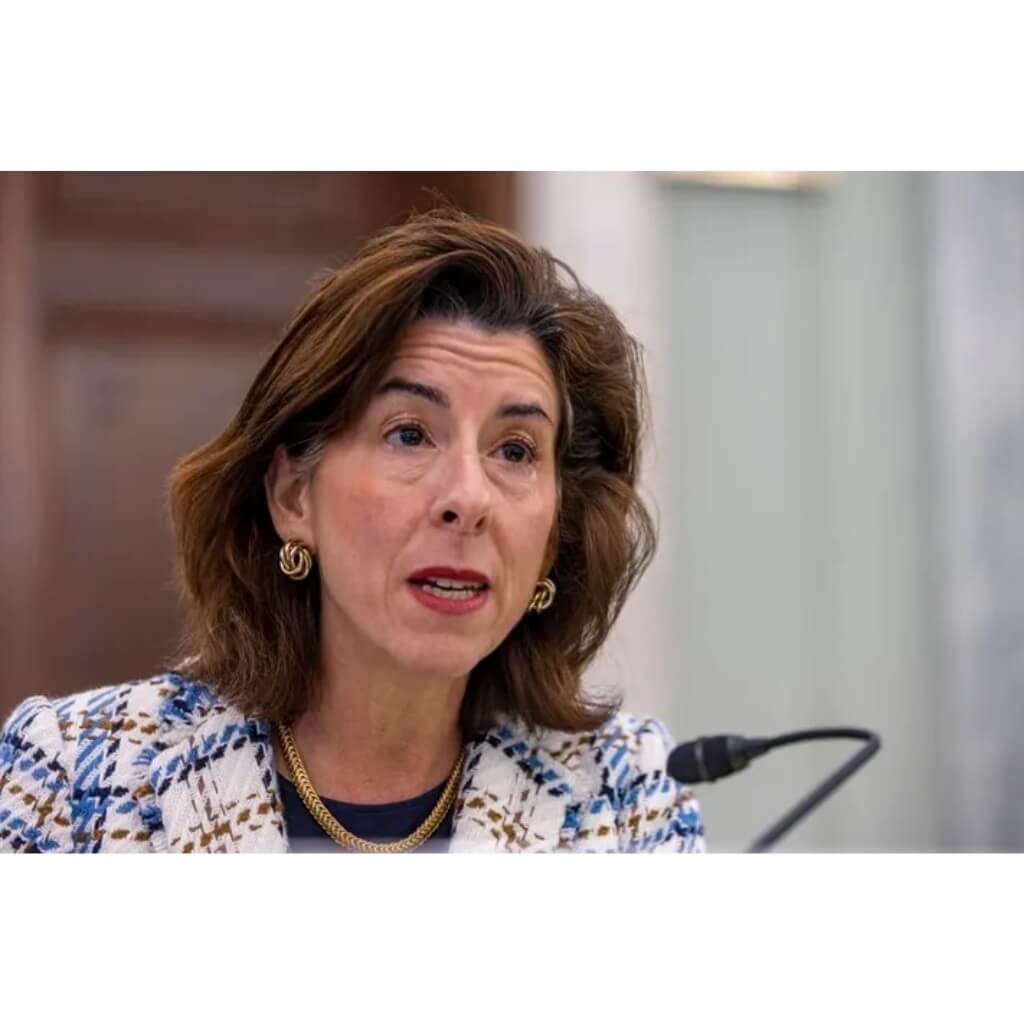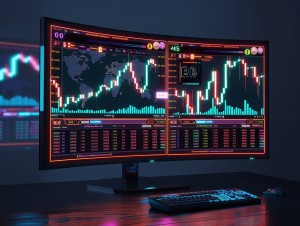The latest buzz in international politics centers around the U.S. Commerce Secretary Gina Raimondo’s recent trip to Beijing. Intending to bridge the widening gaps between the two economic behemoths, Raimondo’s mission could be summarized as: “Defend the non-negotiable, foster growth where possible.”
As she ventured into China’s heartland, she carried with her an agenda grounded in practicality and devoid of naivety.
Walking a Diplomatic Tightrope
Raimondo’s diplomatic dance isn’t just about shaking hands and making empty promises.
The U.S. is toeing a hard line, challenging China’s restrictions on prominent chip company Micron Technology and raising eyebrows over Beijing’s hefty fines on U.S. firm Mintz Group for what has been labeled as “unapproved statistical work.”
Upon her arrival, Raimondo was welcomed by Lin Feng, a representative of the Chinese Commerce Ministry. Her itinerary included face-to-face discussions with key Chinese officials.
Alongside her was the U.S. Ambassador to China, Nicholas Burns. Their joint mission was clear: Keep communications open to reduce friction and avoid misunderstandings.
Raimondo, before her departure, had a conversation with President Joe Biden, who asserted that increased dialogue with China might be the antidote to simmering tensions.
His sentiment resonates with Raimondo’s earlier statement, emphasizing the need for clear communication to sidestep potential conflicts.
Juggling Business and Security Concerns
However, the journey wasn’t without its critics. Some Republicans expressed concerns over the potential establishment of a U.S.-China working group, especially surrounding semiconductor export controls.
While Raimondo did not clarify any specific plans for such a group, she did reiterate a strict stance: No compromises on national security.
Yet, as the U.S. is actively incentivizing its businesses to reduce dependency on Chinese supply chains, especially in the semiconductor sector, Raimondo affirmed that this strategy doesn’t mean the U.S. wishes to completely disengage from China’s economy.
On the flip side, China’s ambassador to the U.S., Xie Feng, who had a rendezvous with Raimondo, expressed China’s vision of mutual respect and a desire for a harmonious coexistence with the U.S.
But with the White House recently hinting at possible restrictions on U.S. investments in sensitive Chinese technologies, it’s clear that both nations tread on thin ice.
Another intriguing element of Raimondo’s visit was her engagement with business leaders. Over a hundred top-tier business magnates had an audience with her, where she pledged to address their grievances concerning the challenges they face doing business in and with China.
Her critical viewpoint towards China’s trading practices, which she feels have adversely impacted American workers and companies, demonstrates her unapologetic approach.
The future landscape of U.S.-China relations, as seen by Wendy Cutler of the Asia Society Policy Institute, appears to hinge on the possibility of President Xi Jinping’s visit to the U.S.
She speculates that Beijing may be keen to find common ground with the U.S., at least in areas where mutual benefits can be identified. Beyond commerce, Raimondo envisions a revival of tourism, a sector that took a nosedive during the pandemic.
Both nations have recently agreed to increase flight frequencies, albeit a far cry from pre-pandemic numbers. If Chinese tourism to the U.S. were to reach 2019 levels, it could inject a whopping $30 billion into the U.S. economy.
Raimondo’s potential visit to Shanghai Disneyland, co-owned by Walt Disney and China’s state-owned Shendi Group, has also made the rounds.
But as we focus on amusement parks and flights, a billion-dollar question looms: When will China resume the purchase of Boeing 737 MAX jets? Raimondo’s previous claims and Boeing’s readiness to deliver suggest that the ball is squarely in China’s court.
Bottomline Raimondo’s visit marks a pivotal moment in U.S.-China relations, filled with candid discussions, a commitment to understanding, and a refusal to sugarcoat the hard truths. Whether this translates into tangible change remains to be seen.





